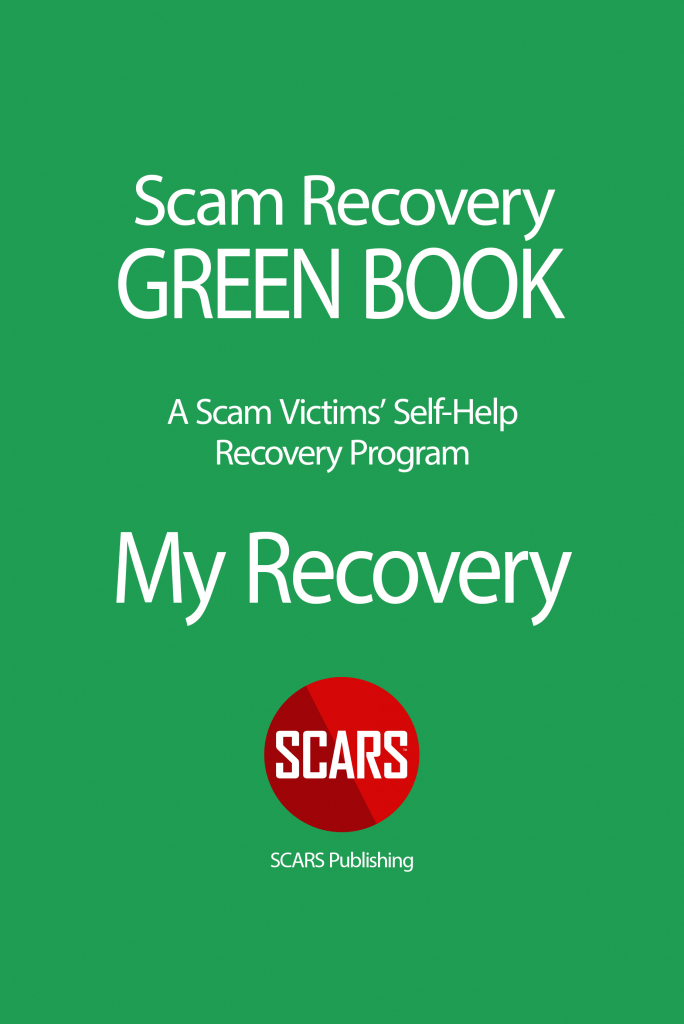
What Just Happened to You?
Introduction To Being A Scam Victim – How did this Scam happen, how did you become a Scam Victim?
Understanding Scam Victim Reality in the Beginning!
Key Topics:
-
What was this crime?
-
How did it happen?
-
Why were you targeted?
-
Understand that it was Not Personal
Realizing You Are a Scam Victim: Understanding the Why and How
An Introduction to Being a Scam Victim
Realizing that you have been scammed can be an incredibly devastating experience. It often comes with a powerful mix of emotions: shock, disbelief, anger, and shame. It’s important to remember that scams are designed to deceive, and even the smartest individuals fall victim.
Understanding why and how it happened is very important in setting you up to recover. However, first, you need the basic answers to what just happened, how it just happened, and why it happened.
Understanding what just happened when someone discovers they have been in a relationship scam is vital for several reasons
- First, it helps you recognize that you are not at fault, as these scams are designed to exploit emotions and vulnerabilities. This realization is essential for emotional healing, as it can alleviate your feelings of guilt and shame. It will not happen overnight, this is going to be a long bumpy ride.
- Second, understanding the mechanics of the scam can empower you to take appropriate actions, such as reporting the incident to authorities, ceasing all communication with the scammer, and securing your personal information.
- Third, it equips you with the knowledge to recognize red flags in future interactions, reducing the risk of falling prey to similar scams again. But understand, that you will always remain vulnerable.
- Lastly, sharing their experience can raise awareness and potentially help others avoid falling into the same trap, contributing to a broader effort to combat these deceptive practices.
Optional For Scam Victims
SCARS WORKBOOK – Blaming Yourself & Feeling Guilty – a Part of the SCARS Recovery Program available on shop.AgainstScams.org
What Just Happened?
You have just discovered that you are the victim of financial fraud (a scam).
Perhaps you are not yet certain? Trust us, if you have suspicions, then you were scammed.
That person that lured you in and gave you an incredible story – either about a romantic relationship or the millions you were going to make in bitcoin or a thousand other lies – it was all just a story, it was all lies, engineered to deceive you into sending your money to these criminals.
It is very simple, you have been scammed.
What Does It Mean to Be a Scam Victim?
Being a scam victim means that you have been deceived by a group of organized professional criminals who took advantage of your trust to steal your money, personal information, or other valuable assets. Scammers are skilled manipulators who use various tactics and techniques to deceive you into believing their lies.
Being scammed by a relationship scammer means being deceived by someone (or a group) who pretends to be interested in a romantic relationship or an investment with the intention of exploiting you emotionally, financially, or both.
These fraudsters often create fake identities presenting themselves as attractive and trustworthy individuals. They invest time in building a seemingly genuine connection, using charming and persuasive communication to gain your trust and affection. Once the emotional bond through grooming and manipulation is established, the scammer typically fabricates a crisis or urgent situation, such as a medical emergency or business problem, and asks you for money or to do something for them. Or in the case of investment scams, something comes up to prevent you from getting your money back.
Realizing you have been scammed brings profound psychological harm – the trauma of violation and betrayal, as these criminals exploit your emotions and vulnerabilities.
Make no mistake, this was a violation, this was psychological violence, this was done to you! You did not consent to this.
You did not fall for it. You did not see the red flags. You did not allow it to happen. You were contacted or lured in. You were expertly groomed, manipulated, and controlled. This was done without your consent. You were violated and this was an act of violence. We say it was psychological enslavement.
As you go forward, you can learn why what we just said is fact. But for now, just try to accept it. It will be very hard.
Sadly, scam victims like you often find themselves deeply emotionally involved, that after all was the purpose of the manipulation, making it difficult to recognize the deception until it’s too late. The financial loss can be substantial, but the emotional impact (injury) of betrayal trauma is equally significant, leading to feelings of betrayal, embarrassment, and devastation. This is not just emotional, this will deeply affect your brain in ways you never knew of before.
The scammer’s manipulative tactics can leave you questioning your judgment and struggling with trust issues for a long time to come. Recognizing the signs of a relationship scam and understanding its manipulative nature is very important for you to begin the process of recovery and to protect yourself from future scams. But understand this clearly. You are the victim of a crime and have been significantly injured by it. You will not just get over this, it is going to take professional help if you really want to get back to who you were (more or less) before.
Why Did This Happen to You?
The first thing to know is that you are not the only one. There are millions, yes, millions of other victims just like you! There is at least one victim every 5 seconds. It is estimated that there have been over 100 million victims of these same crimes worldwide.
The next thing to know is that you can make it through this. As hard as it is, you can survive this.
You encountered a group of highly organized professional criminals. They were not targeting you specifically, they target everyone. For them, it is just a business for them. This is hard to hear, but this is the truth.
How do they lure in, capture, manipulate, and control people like you?
- Victims Come to Them or They Select Random People: People who are on dating websites come to them by selecting their profiles, but not always. More often it was just your turn – they picked you – whether on dating websites, online games, or social media. It could also have been through a random text or instant message. They will contact anyone that they can friend or contact. It might be something you share on your profile, but most times not – it was just because they could reach you.
- Lured You In: It doesn’t take much to lure someone in. They say hello, and then you say hello, and they have you. At that point, the grooming begins. Your only mistake was saying hello to a stranger.
- Grooming: Whether it is a romance scam, and cryptocurrency investment scam, a lotto scam, a phone scam, or others, they will begin by probing your information. In trust-based relationship scams it is all about finding their victim’s vulnerabilities so they can exploit them. They are experts at this.
- Amygdala Hijacks: Something you will learn a lot more about is how your own mind is hijacked and used against you. There is a part of your brain called the amygdala that controls your reactions to emotional triggers. It responds by releasing hormones and neurotransmitters in your brain and selecting a reactionary response. It could be fight or flight, but it could also be love and affection, or fear or anger. It depends on the type of scam.
- Sophisticated Techniques: Scammers use highly sophisticated techniques to make their schemes appear legitimate. They often research their targets, tailor their approaches, and use convincing communication methods to build trust.
- Emotional Manipulation: Scammers know how to exploit human emotions. They might play on your fears, hopes, or desires. For instance, they might promise love, financial security, or urgent assistance in a crisis.
- Social Engineering: This involves manipulating people into divulging confidential information. Scammers might pose as someone you trust, like a bank representative or a loved one, to gain access to your personal details or money.
- Information Overload: In today’s digital age, we are bombarded with information. Scammers exploit this by creating fake websites, emails, and social media profiles that look identical to the real thing. It’s easy to get confused and make a mistake.
How Did This Happen?
Simply said, this happened because you were vulnerable and susceptible to it. And you will need to change that, but it will not be easy.
Everyone has vulnerabilities that they are not even aware of, from past traumas, cognitive biases, compromised living situations, and many more. In relationship scams, these are often rooted in emotional and psychological factors that the victims do not know anything about.
Scammers typically target individuals who exhibit signs of potential vulnerabilities, such as loneliness, recent bereavement, divorce, or other forms of emotional distress. Those people are more likely to be seeking connection and support, making them susceptible to the scammer’s lures, grooming, manipulation, and control tactics. Was that you?
Additionally, ignorance and unawareness play a role too. Individuals who are less experienced with online interactions or who have not encountered such scams before might be more trusting and less able to recognize red flags. Scammers exploit these vulnerabilities by providing the attention, affection, and validation their victims crave, creating a powerful emotional bond that clouds judgment and creates psychological enslavement. The psychological tools they use work on almost every human.
These scams happen because scammers are highly skilled at identifying and exploiting these vulnerabilities. They often employ sophisticated techniques such as creating detailed and believable fake identities and storylines, engaging in prolonged and intimate conversations, and gradually building trust. Once a strong emotional connection is established by actually hijacking the victim’s brain, they introduce fabricated crises or urgent financial needs, leveraging the victim’s emotional investment, needs and desires, and cognitive biases to elicit money or personal information. The anonymity and distance afforded by the internet further facilitate these scams, allowing perpetrators to craft elaborate lies and manipulate multiple victims simultaneously without immediate risk of detection.
This combination of victim vulnerabilities and the scammer’s calculated engineered approach makes relationship scams particularly insidious and effective.
Here are some examples:
- Online Scams: These include phishing emails, fake online stores, and social media scams. You might have received an email that looked like it came from your bank, asking you to verify your account details. Or, you might have seen a too-good-to-be-true offer on social media and clicked on it.
- Romance Scams: These occur when scammers create fake profiles on dating sites or social media, build a relationship with you, and then ask for money. They play on your emotions, making you believe they genuinely care for you.
- Investment Scams: You might have been promised high returns on an investment opportunity. These scams often involve fake financial advisors or Ponzi schemes where the scammer takes your money and disappears.
- Phone Scams: Scammers might call you pretending to be from a government agency, tech support, or a charity, convincing you to provide personal information or make a payment.
- Sextortion Scams: These are horrible crimes that prey on teens to the elderly. The scammers lure you into a romantic and intimate relationship and then get you to send them intimate photos. Once you do they turn around and blackmail you. They will extort money from you or they will release them to your family and friends.
Who Are These Monsters?
Relationship scammers are most often teams of individuals who work as part of larger organized crime enterprises that use deception to exploit people’s emotions and trust for financial gain. They can be located anywhere in the world, though many operate from countries where cybercrime laws are less stringent – from Africa to Asia to India to Latin America. These scammers are skilled professional manipulators, expert at using psychological tactics to create convincing personas and emotional connections with their targets. They often spend time during the grooming phase to learn about and understand their victims so they can tailor their approach to match the specific person, making their interactions seem more genuine and personalized, and the psychological trauma that comes from it that much worse.
These scammers target good people by exploiting universal human desires for love, companionship, and connection. They often prey on those who may be lonely, recently widowed or divorced, or who are otherwise vulnerable. Using fake profiles with stolen photos and fabricated backstories, they create a sense of trust and intimacy through frequent, affectionate communication. Over time, they manipulate their victims’ emotions, gradually leading them to believe in the authenticity of the relationship.
However, understand this. The human brain is wired to be deceived. It was not just you, this is just the way humans evolved.
The criminals justify their actions in various ways. Some see it as merely a business or a means to an end, rationalizing their behavior as a necessary survival tactic, or to fulfill their need for wealth. Almost all of them are simply indifferent to the harm they cause, focusing solely on the financial rewards. The impersonal nature of online interactions can also make it easier for scammers to detach from the real-life consequences of their actions. Despite their deceptive practices, it’s critical to remember that you are not to blame; the criminals targeted you specifically because of their inherent goodness and capacity for trust. However, they really did not target you personally, it was just your day.
What Now?
After the initial shock of discovering they have been scammed, you must take several important steps to mitigate the damage and begin the process of recovery.
Make sure you read the other articles on this site, they are in order to help you!
The next steps include:
1. Ceasing All Communication
The first and most important step for you is to stop all communication with the scammers immediately. Continuing to interact with the scammer can lead to further manipulation and exploitation. You should block the scammers on all platforms and change their privacy settings to prevent further contact.
2. Reporting the Scam
Victims should report the scam to relevant authorities and organizations. This includes filing a report with local law enforcement, as well as national bodies such as the FBI at www.IC3.gov and the Federal Trade Commission (FTC) in the United States or Action Fraud in the UK. Go to reporting.AgainstScams.org for more information and contact links.
Reporting the scam helps authorities track and potentially apprehend the scammers, and it can also help prevent others from falling victim to the same scheme. Additionally, this is your opportunity to really break free from the criminals control.
3. Securing Personal and Financial Information
You should take immediate steps to protect their personal and financial information. This includes changing passwords for online accounts, particularly those related to banking and email. If financial information has been shared, victims should contact their bank or credit card company to alert them to the situation and potentially freeze their accounts. Monitoring credit reports for any unusual activity is also advisable. We will explain all of this and more in other articles,
4. Seeking Emotional Support
The emotional impact of a relationship scam can be significant, leading to feelings of shame, anger, and betrayal. You need to seek support from trusted friends and family members and consider professional counseling, trauma requires it. SCARS support groups online can provide a space for you to share your experiences and gain strength from others who have been through similar situations.
5. Educating Yourself
You should educate yourself about what has happened to you both emotionally, psychologically, and potentially physically. Later you can also learn about common scam tactics to better protect yourself in the future. Understanding how these scams operate and the psychological methods used by these criminals can help you recognize warning signs in future interactions, reducing the likelihood of being deceived again.
6. Spreading Awareness
Sharing their experience can be a powerful tool for prevention, but it is not important now.
Later on, by spreading awareness about relationship scams, you can help others recognize the signs and avoid falling prey to similar schemes. This can be done through social media, community talks, or contributing to awareness campaigns by relevant organizations. Just remember one important thing, you’re not an expert in any of this. You need to heal first and learn before you will be able to help others.
Next?
Read this: SCARS 3 Steps For New Scam Victims STOP • BLOCK • REPORT
SCARS Support & Recovery
- SCARS INSTITUTE FREE Scam Survivor’s School for Your Recovery • www.SCARSeducation.org
- SCARS Support & Recovery Program For Scam Victims
- Join a Free Safe & Confidential SCARS Support & Recovery Group Now
- SCARS Self Help Books
- How Scam Victims Can Maximize Support Groups Benefits
- If you are looking for local trauma counselors please visit counseling.AgainstScams.org or join SCARS for our counseling/therapy benefit: membership.AgainstScams.org
- If you need to speak with someone now, you can dial 988 or find phone numbers for crisis hotlines all around the world here: www.opencounseling.com/suicide-hotlines
Important Things For Scam Victims To Know
- Importance Of Starting Off Right For New Scam Victims
- Importance Of Journaling For New Scam Victims
- Importance For Scam Victims Of Support & Recovery Group
- Importance Of Learning For Scam Victims Recovering
- Importance Of Trauma Therapy For Scam Victims
- Importance Of Scam Victims Avoiding The Vigilante Trap
- SCARS 3 Steps For New Scam Victims
- Every New Scam Victim Needs To Understand What To Do Next!
- Scam Victims Reporting Scams And Interacting With The Police
- Essential Information for New Scam Victims on SCARS RomanceScamsNOW.com
- Learn More on SCARS ScamsNOW.com
SCARS Resources
- Register for the SCARS Institute FREE Scam Survivor’s School at SCARSeducation.org
- More Info For New Victims of Relationship Scams newvictim.AgainstScams.org
- Subscribe to SCARS Newsletter newsletter.againstscams.org
- Sign up for SCARS professional support & recovery groups, visit support.AgainstScams.org
- Join our Scam Survivors United Chat, Education & Discussion Group facebook.com/groups/scam.survivors.united
- Find competent trauma counselors or therapists, visit counseling.AgainstScams.org
- Become a SCARS Member and get free counseling benefits, visit membership.AgainstScams.org
- Report each and every crime, learn how to at reporting.AgainstScams.org
- Learn more about Scams & Scammers at RomanceScamsNOW.com and ScamsNOW.com
- Scammer photos ScammerPhotos.com
- SCARS Videos youtube.AgainstScams.org
- Self-Help Books for Scam Victims are at shop.AgainstScams.org
- Donate to SCARS and help us help others at donate.AgainstScams.org
- Worldwide Crisis Hotlines: https://blog.opencounseling.com/suicide-hotlines/
• SCARS Scam Psychology Guides & Knowledge: ScamPsychology.org





















What just happened? That was definitely a question I asked myself. So many parts of this article describes my experience and how it affected me. It’s painful and depressing sometimes to relive the events in my mind while reading these articles. I’m so glad SCARS has a road to recovery that I can follow.